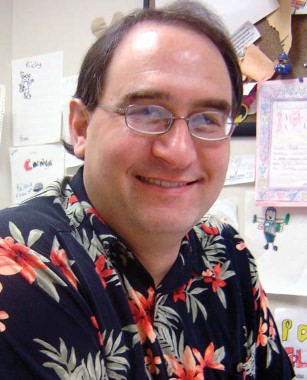User login
I prefer simple things, but that hasn’t always been the case. There was a time when I, and probably most doctors, enjoyed the complex cases and the intellectual detective work they involved. Neurology has a well-deserved reputation of being a thinking person’s field.
The challenging patients, especially during training, are what makes many of us tick. We look for subtle clues in the history and exam, comb through lab and radiology reports to see if anything was missed, and search databases for similar cases. This is the process that is critical to becoming a doctor, and learning it is a key step in medical school and residency.
You get to be a combination of Sherlock Holmes and Gregory House. Nothing can stoke your ego like nailing a difficult diagnosis, but not any more, at least to me.
As the years go by, I prefer my life simple. It doesn’t mean that I don’t occasionally enjoy the complex cases or have lost my ability to handle them.
It’s recognition of how life and the practice of medicine change you. At this point in my solo-practice career, I have responsibilities outside of my practice: kids to shuttle around, work to be done at home, and forms to complete.
Over time you realize that the simple cases and the complex ones both (generally) pay the same amount, yet the latter take far more time. This is a sad truth of modern medicine. The intellectual interest becomes replaced by the more immediate needs of financially supporting a practice.
Determining if a patient has oculopharyngeal muscular dystrophy or Kufs disease is certainly fascinating to work-up and then to manage, but I’ll take carpal tunnel syndrome over either, every time.
Dr. Block has a solo neurology practice in Scottsdale, Ariz.
I prefer simple things, but that hasn’t always been the case. There was a time when I, and probably most doctors, enjoyed the complex cases and the intellectual detective work they involved. Neurology has a well-deserved reputation of being a thinking person’s field.
The challenging patients, especially during training, are what makes many of us tick. We look for subtle clues in the history and exam, comb through lab and radiology reports to see if anything was missed, and search databases for similar cases. This is the process that is critical to becoming a doctor, and learning it is a key step in medical school and residency.
You get to be a combination of Sherlock Holmes and Gregory House. Nothing can stoke your ego like nailing a difficult diagnosis, but not any more, at least to me.
As the years go by, I prefer my life simple. It doesn’t mean that I don’t occasionally enjoy the complex cases or have lost my ability to handle them.
It’s recognition of how life and the practice of medicine change you. At this point in my solo-practice career, I have responsibilities outside of my practice: kids to shuttle around, work to be done at home, and forms to complete.
Over time you realize that the simple cases and the complex ones both (generally) pay the same amount, yet the latter take far more time. This is a sad truth of modern medicine. The intellectual interest becomes replaced by the more immediate needs of financially supporting a practice.
Determining if a patient has oculopharyngeal muscular dystrophy or Kufs disease is certainly fascinating to work-up and then to manage, but I’ll take carpal tunnel syndrome over either, every time.
Dr. Block has a solo neurology practice in Scottsdale, Ariz.
I prefer simple things, but that hasn’t always been the case. There was a time when I, and probably most doctors, enjoyed the complex cases and the intellectual detective work they involved. Neurology has a well-deserved reputation of being a thinking person’s field.
The challenging patients, especially during training, are what makes many of us tick. We look for subtle clues in the history and exam, comb through lab and radiology reports to see if anything was missed, and search databases for similar cases. This is the process that is critical to becoming a doctor, and learning it is a key step in medical school and residency.
You get to be a combination of Sherlock Holmes and Gregory House. Nothing can stoke your ego like nailing a difficult diagnosis, but not any more, at least to me.
As the years go by, I prefer my life simple. It doesn’t mean that I don’t occasionally enjoy the complex cases or have lost my ability to handle them.
It’s recognition of how life and the practice of medicine change you. At this point in my solo-practice career, I have responsibilities outside of my practice: kids to shuttle around, work to be done at home, and forms to complete.
Over time you realize that the simple cases and the complex ones both (generally) pay the same amount, yet the latter take far more time. This is a sad truth of modern medicine. The intellectual interest becomes replaced by the more immediate needs of financially supporting a practice.
Determining if a patient has oculopharyngeal muscular dystrophy or Kufs disease is certainly fascinating to work-up and then to manage, but I’ll take carpal tunnel syndrome over either, every time.
Dr. Block has a solo neurology practice in Scottsdale, Ariz.
